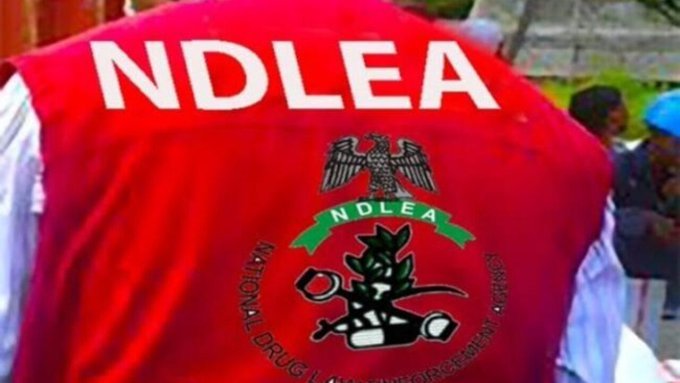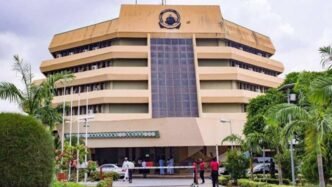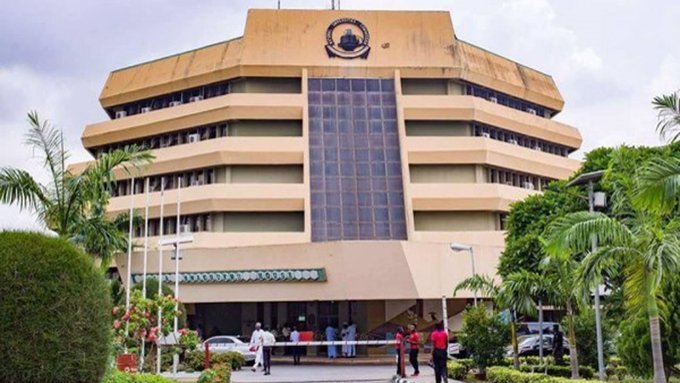Abuja, Nigeria – September 24, 2025: In a bold move to enhance road safety and curb substance abuse, the National Drug Law Enforcement Agency (NDLEA) has announced plans to make drug tests compulsory for drivers seeking new licences or renewing existing ones across Nigeria.
The proposal, which is awaiting government approval, is set to become one of the most far-reaching policies in Nigeria’s battle against drug abuse and reckless driving. If passed, the initiative will affect millions of drivers, commercial transport operators, and private car owners.
Why NDLEA is Proposing Mandatory Drug Tests
According to NDLEA Chairman, Brigadier General Buba Marwa (Retd), the measure was born out of a troubling pattern: a growing number of road accidents linked to drivers operating vehicles under the influence of narcotics.
Marwa noted that substances like tramadol, cannabis, methamphetamine, codeine syrup, and other illicit drugs have increasingly been detected in drivers involved in fatal crashes.
“Driving is a serious responsibility. Anyone behind the wheel under the influence of drugs not only endangers his life but the lives of every passenger and other road users. This policy is designed to save lives and promote sanity on our roads,” Marwa stated during a briefing in Abuja.
How the Policy Will Work
If approved, the mandatory drug test system will be integrated into the driver’s licence application and renewal process, in collaboration with the Federal Road Safety Corps (FRSC).
Key points of the proposal include:
- Pre-licence Testing: New applicants must undergo a drug test at NDLEA-approved centers before being issued licences.
- Renewal Requirement: Existing drivers will be required to present a negative test result when renewing their licences.
- Referral for Rehabilitation: Drivers who test positive will not be outrightly banned but instead referred to rehabilitation programs before reapplying.
- Nationwide Coverage: Tests will be rolled out in phases across states, starting with major cities and expanding nationwide.
The NDLEA stressed that the tests would be handled professionally to ensure fairness, accuracy, and confidentiality.
Nigeria’s Road Safety Crisis
Nigeria’s roads are among the most dangerous in the world, with thousands of accidents reported annually. According to data from the Federal Road Safety Corps (FRSC), reckless driving, overspeeding, and impaired judgment are among the leading causes of crashes.
Experts argue that the rise in drug abuse among young Nigerians, particularly commercial bus drivers and motorcyclists, has contributed significantly to the problem. With commercial transport serving millions daily, the risk is multiplied when drivers operate under the influence.
A transport analyst, Dr. Uche Okafor, explained:
“It’s not uncommon to find commercial drivers taking stimulants to stay awake on long trips. While they believe it improves performance, it actually impairs judgment, slows reaction time, and increases the risk of fatal accidents. NDLEA’s proposal is timely and could save countless lives.”
Public Reactions
The announcement has triggered a nationwide debate.
Supporters
Road safety advocates, health experts, and transport unions have largely welcomed the move. They argue that the policy will:
- Reduce the number of drug-related accidents.
- Encourage drivers to remain drug-free.
- Identify addicts early for rehabilitation.
A representative of the National Union of Road Transport Workers (NURTW) said:
“Too many of our members have been lost to accidents caused by drugs. We support anything that will save lives. However, government must ensure the process is affordable and free from corruption.”
Critics
On the other hand, civil rights groups and some members of the public have raised concerns. Their worries include:
- Cost of Testing: If drivers are required to pay for drug tests, it could become an extra burden, especially for low-income earners.
- Privacy Issues: Some argue that mandatory testing may violate individual rights.
- Potential for Abuse: Skeptics warn that without strict oversight, the policy could be exploited for extortion and harassment.
Human rights lawyer, Barrister Funmi Adeyemi, cautioned:
“While the objective is noble, government must tread carefully. Mandatory drug testing should not become another avenue for extortion or an infringement on citizens’ rights. Transparency and accountability are key.”
Global Context
Mandatory drug testing for drivers is not new. Several countries, including the United States, Canada, and parts of Europe, already have strict rules for commercial drivers, with random drug and alcohol tests forming part of safety regulations.
In Africa, South Africa has also experimented with similar measures, particularly targeting public transport operators. NDLEA’s proposal could make Nigeria one of the few West African nations to adopt such a policy nationwide.
Implications for Drivers and Transport Operators
If implemented, the proposal will have wide-reaching effects:
- Commercial Drivers: Bus, taxi, and truck drivers will face stricter scrutiny, which may affect their operations if they fail tests.
- Private Vehicle Owners: Everyday motorists will also need to comply when renewing licences.
- Transport Companies: Logistics and ride-hailing companies may be required to ensure their drivers undergo regular tests.
Industry experts predict that while there may be resistance initially, the policy could gradually transform driving culture in Nigeria.
Rehabilitation as Part of the Solution
One notable feature of the NDLEA’s plan is its emphasis on rehabilitation over punishment. Instead of permanently barring offenders, the agency intends to refer drivers who test positive to treatment centers.
NDLEA officials said this approach reflects the reality that drug abuse is often a health issue requiring medical and psychological support.
Dr. Ifeoma Nwosu, a psychiatrist and addiction specialist, described the policy as “progressive.”
“By combining enforcement with rehabilitation, NDLEA is tackling both the symptom and the root cause. This could reduce stigma and encourage more people to seek help.”
Next Steps
The NDLEA has submitted the proposal to the Federal Government for approval. Consultations are ongoing with the Federal Ministry of Transport, the FRSC, and state governments to design a clear framework for implementation.
If given the green light, pilot programs may begin in Lagos, Abuja, and Port Harcourt before expanding nationwide.
Why This Policy Matters
Nigeria is at a crossroads in its fight against road accidents and drug abuse. By linking driver licensing to drug-free certification, NDLEA aims to:
- Improve public safety by ensuring only sober, mentally stable individuals drive on Nigerian roads.
- Promote accountability among drivers and transport operators.
- Support national drug control efforts by integrating rehabilitation into road safety policies.
For millions of Nigerians who rely daily on public transport, this proposal could mark a turning point in reducing the dangers of reckless, drug-influenced driving.
Conclusion
The NDLEA’s proposal for mandatory drug testing of drivers seeking licences represents a bold and potentially transformative step for Nigeria. While concerns about cost, privacy, and enforcement remain, the overarching goal of saving lives and promoting road safety has struck a chord with many.
As the Federal Government reviews the plan, the coming months will determine whether this policy becomes law — and whether Nigeria is ready to take the difficult but necessary step of confronting drug abuse behind the wheel.
For now, one thing is clear: the future of road safety in Nigeria may soon depend on a clean bill of health from the NDLEA.














